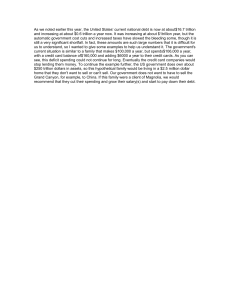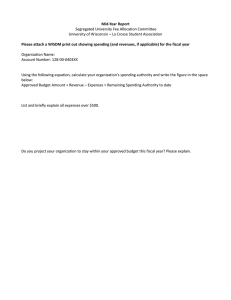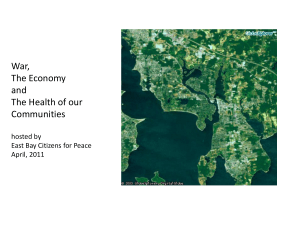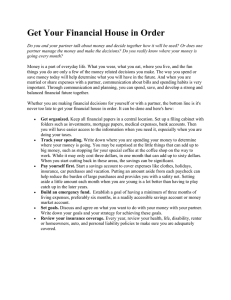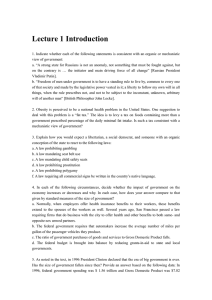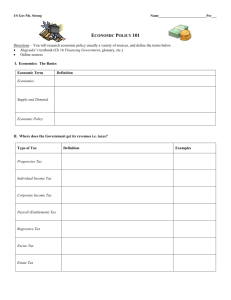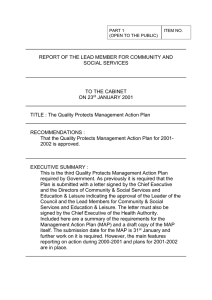Role of Government Chapter 12
advertisement
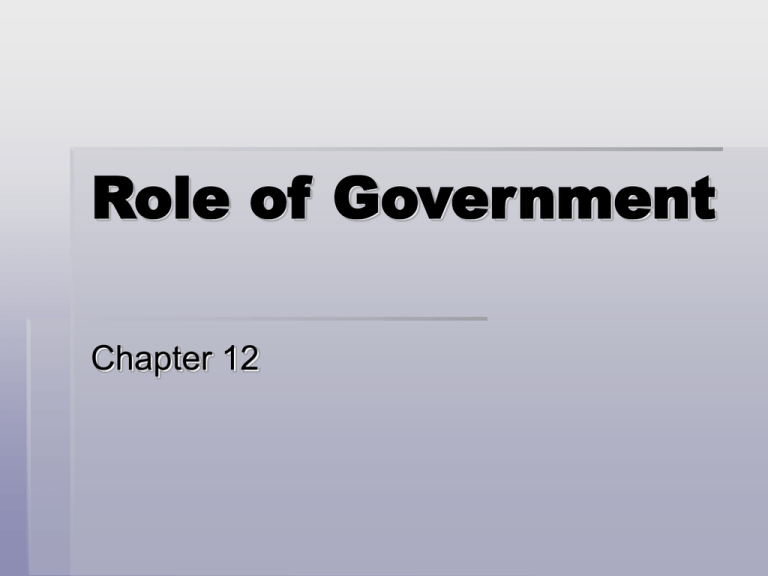
Role of Government Chapter 12 GROWTH OF GOVERNMENT The U.S. government employs more people in the U.S. than any other organization. The growth of government has taken place as a result of 4 key factors: 1. Population growth – a larger population requires more educational facilities, increased road construction and repair, more police protection, and larger national defense forces. 2. Changing public attitudes – during and shortly after the Great Depression people began to recognize the need for government intervention in the economy. 3. Rising standard of living - once people earn enough to meet their basic needs, they then look for ways to fulfill their wants, usually through increased spending – as people spend more and increase their standard of living, they expect goods and services to improve – that sometimes means more government programs (Ex: growth in education, health care) 4. National emergencies – a national emergency such as war or an economic crisis can cause the government to increase in size. Spending by the federal, state, and local governments in the U.S. in 1950 was about $70 billion dramatic increases in the number of government programs meant by 2003 total government expenditures had risen to more than $3.5 trillion. The federal government spends the largest share of this figure ($1.4 trillion) – about ½ of federal expenses go toward paying for insurance benefits (social security, Medicare, retirement, etc.) and interest on debts other federal expenses include national defense, education, public hospitals, and law enforcement. State and local governments also spend large sums of money (an average of about $3.3 billion a day or $38,274 a second) state and local budgets are generally for education, public welfare, road construction, hospitals, police and fire protection, etc. In the U.S., all governments regulate business through rules and procedures that guide economic activity government regulation has 3 main purposes: 1. Preventing abuses – Ex: protects workers from discrimination, unhealthy working conditions 2. Protecting consumers – Ex: the Food and Drug Adm. (FDA) protects people from unsafe foods, medicines, and toys. 3. Promoting competition – Ex: prevents the formation of monopolies (complete dominance by 1 company in an industry) Individuals that do not agree with certain government regulations have an opportunity to change them – How? By voting Through political activism Participating in or supporting an interest group, which is an organization of people who work together to achieve their common goals interest groups often give money to political candidates or campaigns for them most interest groups advance their plans through lobbyists (people hired to work for an interest group) – lobbyists can be found in most governmental facilities (Ex: Congress, state legislatures)
